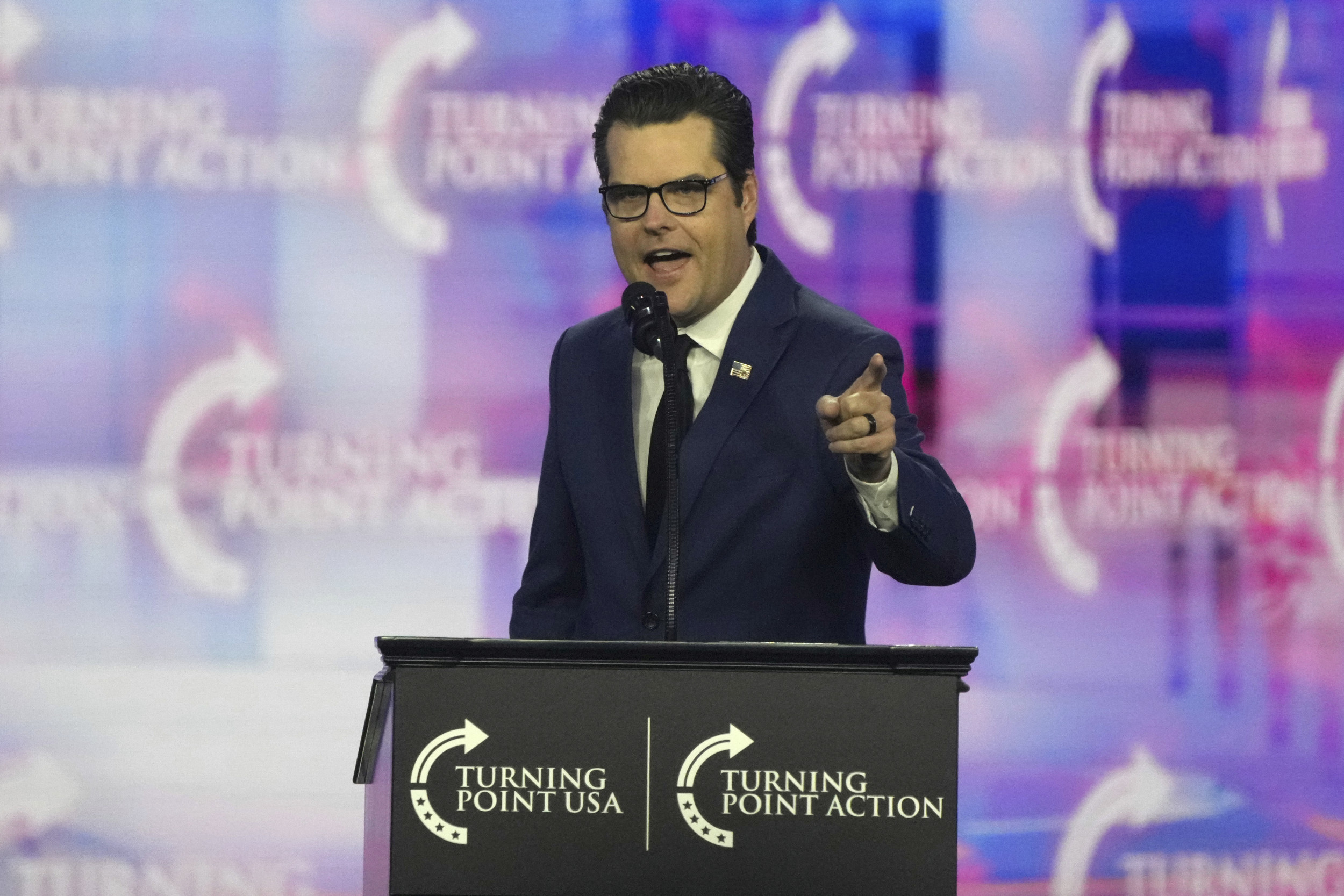What's New
President-elect Donald Trump's border czar, Tom Homan, has shared new details about plans to reinstate family detention policies at the U.S.-Mexico border.
Newsweek has contacted the Trump-Vance transition team for comment via email.
Why It Matters
It comes as the incoming administration gears up to enact a hard-line immigration agenda, including stricter border controls and mass deportations.
Trump's immigration policies are drawing sharp criticism from human rights advocates who argue it could lead to the prolonged detention of children and family separations.
Homan, who served as the acting director of U.S. Immigration and Customs Enforcement from 2017 to 2018, is widely regarded as a key architect behind the controversial family separation policy.

What To Know
In 2021, President Joe Biden ended the practice of family detention by shutting down three facilities previously referred to by ICE as "residential centers," which collectively provided around 3,000 beds. These centers featured dormitory-style layouts with recreational and educational programs. However, they faced criticism from immigration advocates and pediatricians, who argued that detention posed significant harm to children.
A federal judge overseeing immigration detention programs for minors has established a 20-day limit on how long children can be held in family detention centers. Since the deportation process often takes longer, ICE has typically focused on deporting adults who are easier to remove. However, Homan indicated this approach might shift once Trump assumes office.
"We're going to need to construct family facilities," Homan told The Washington Post. "How many beds we're going to need will depend on what the data says."
"We need to show the American people we can do this and not be inhumane about it," he said. "We can't lose the faith of the American people."
In 2012, Homan was a senior ICE official when the agency deported over 400,000 people, marking an all-time high. However, he stated that he is not yet prepared to commit to a specific deportation target, as it depends on the resources available to expand ICE's capacity: "I'd be setting myself up for disappointment."
Homan suggested that parents who entered the United States illegally, arranged for their children to join them, and later reclaimed them from U.S. government custody should face deportation proceedings—a prospect that often deters many from attending government check-ins.
"You knew you were in the country illegally and chose to have a child. So you put your family in that position," Homan said.
The American Business Immigration Coalition (ABIC) estimates that implementing Trump's flagship mass deportation policy could reduce agricultural output by $30 to $60 billion.
"I'm sick and tired of hearing about the family separation," Homan said at CPAC. "I'm still being sued over that.... I don't give a s***, right? Bottom line is, we enforced the law."
What People Are Saying
Lee Gelernt, an American Civil Liberties Union (ACLU) attorney told The Washington Post: "The incoming administration has refused to acknowledge the horrific damage it did to families and little children the first time around and seems determined to once again target families for gratuitous suffering.
Amy Fischer, Director of Refugee and Migrant Rights at Amnesty International USA, previously told Newsweek: "President-elect Trump has already openly announced his intention to implement policies that completely disregard human rights, human dignity, and family unity.
"The proposed policies are rooted in racism and xenophobia with the sole aim of causing cruel and immense suffering to people coming to the U.S. to rebuild their lives," Fisher added.
Héctor Quiroga, an immigration attorney, previously told Newsweek: "If implemented, these mandates would create a huge labor shortage in the U.S. and it would make us less competitive in the global marketplace.
"As the nation braces for significant policy shifts, business leaders, workers and advocacy groups are calling for a more balanced approach that supports both immigration reform and the economic stability of industries dependent on immigrant labor."
What's Next
With less than a month before his return to the White House, Trump has pledged to initiate the largest deportation operation in U.S. history. On his first day in office, he is expected to sign a series of executive orders prioritizing mass deportations and bolstering border security.
The President-elect has also vowed to shut down the CBP One asylum application app, end the catch-and-release policy, reinstate the Remain in Mexico program, and take assertive measures to fortify the border as part of his hard-line immigration strategy.
Across the aisle, Democratic lawmakers and advocacy groups are preparing to challenge the future president's hard-line immigration enforcement policies.
.jpg?mbid=social_retweet)



















 English (US) ·
English (US) ·